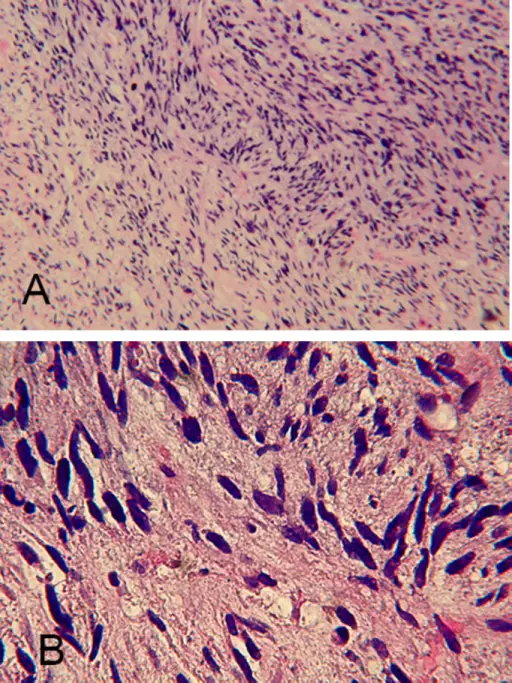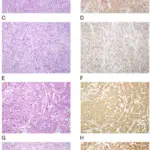Cardiac sarcoma is a malignant cardiac tumor that is also the most common malignant tumor of the heart.
What is the Pathology of Cardiac Sarcoma?
The pathology of cardiac sarcoma is:
-Etiology: The cause of cardiac sarcoma is an abnormal cell division regulation that is caused by immune system irregularities that is associated with previous radiotherapy treatment.
-Genes involved: p53 gene.
-Pathogenesis: The sequence of events that lead to cardiac sarcoma is ana;yzed to be due to numerical and structural chromosomal changes that arise as a mural mass in the right atrium, eventually affecting adjacent structures.
-Histology: The histology associated with cardiac sarcoma shows collapsed, complex anastomosing vascular channels lined with flat/tufted bland endothelial cells.
How does Cardiac Sarcoma Present?
Patients with cardiac sarcoma typically affect male with a prevalence of 0.2% and present at any age. The symptoms, features, and clinical findings associated with cardiac sarcoma include dyspnea, chest pain, hemoptysis, diminished cardiac sounds, friction rub, rales, arrhythmia, heart block and heart failure.
How is Cardiac Sarcoma Diagnosed?
Cardiac sarcoma is diagnosed with echocardiography, CT scan/MRI, and angiography for assessment of arteries. Chest x-ray may show cardiomegaly, pulmonary congestion/ effusion, and hilar adenopathy.
How is Cardiac Sarcoma Treated?
Cardiac sarcoma is treated with surgical excision and radiotherapy with/without chemotherapy. .
What is the Prognosis of Cardiac Sarcoma?
The prognosis of cardiac sarcoma is poor with postoperative survival of 17 months and 6 months for those without treatment.



